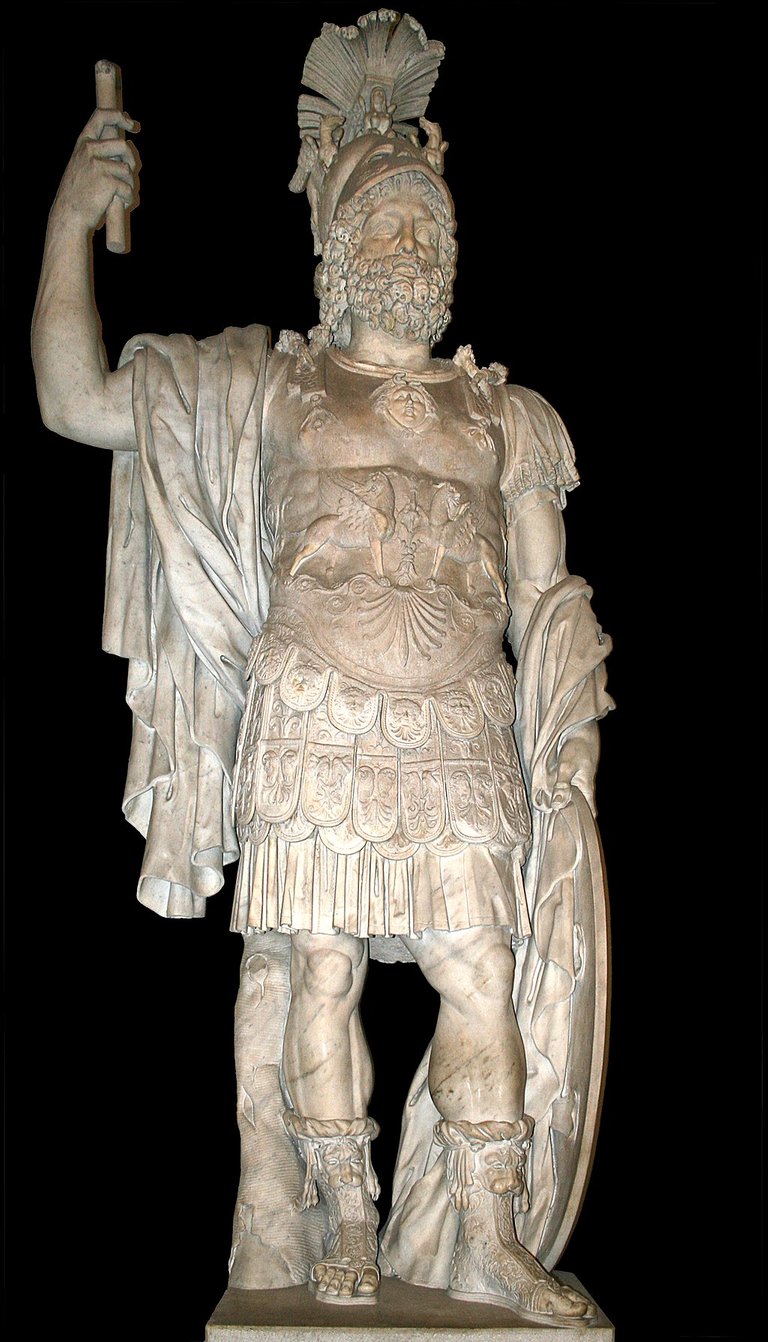Now let us continue with our mini-series "Schopenhauer and the planets" #schopenhauerssolarsystem in which I take a closer look at a passage from Schopenhauer's "Aphorismen der Lebensweisheit", where the german
philosopher compares the different stages of life with the planets in the solar system and the gods they were named after, and add my own thoughts to expand on Schopenhauer's ideas.
(You can read the teaser here.)
So far we have seen man at the age of 10, which was compared to Mercury and at the age of 20, which was compared to Venus.
Now, let us look at the age 0f 30, which is compared to Mars!
(First of all, let me apologise that this took so long - as you can tell, these require a lot of research and thinking, plus I was really busy with work the last couple of days 😅😅)
We begin as always with looking at what Schopenhauer wrote:
| german (original) | english (own translation) |
|---|---|
| "Im dreißigsten Lebensjahre herrscht Mars: der Mensch ist jetzt heftig, stark, kühn, kriegerisch und trotzig." (Aphorismen zur Lebensweisheit, p. 262) | "Mars rules in the thiertieth year of life: man is now fierce, strong, bold, militant and defiant." |
As you can see, Schopenhauer just skips the earth.
The God

Statue of Mars by an unknown artist, ca. 2nd century AD
Photo by: Jean-Pol GRANDMONT, licence
The sentence above only talks about Mars in the sense of the god of war, known to the greeks as Ares.
So let's take a closer look at that.
In his 30s, man is much like Mars in the way Schopenhauer descriped. But while some people may think of the god of war to only have bad qualities, this is by no means what Schopenhauer wants to say. Instead, he is talking about a form of energy which can just as well be something positive: the drive to conquer knew places, like get ahead in the career or find other ways to "make a name for oneself." This requires a bit of agression, a bit of fiercness, to get ahead in life. Your 30s is a good place for that: you aren't as inexperienced as you were in your 20s. You know what you want (or at least know it better) and you know enough about how the world works to be able to put a usefull plan into action. But you are also still young enough that you aren't disillussioned yet, so you have all this energy.
The Planet

Mars in true colours, as seen by the Rosetta Space Probe in 2007. Author: ESA & MPS for OSIRIS Team MPS/UPD/LAM/IAA/RSSD/INTA/UPM/DASP/IDA, license
Okay, know let's go a bit beyond what Schopenhauer wrote and take a look at the planet.
One thing Schopenhauer never wrote about was space colonisation; in the 19th century, only a few people thought about that. But now it looks like Mars probably will be the first planet to be colonised by humans.
The first human cities that aren't on Earth will be founded there and the first humans that weren't born on earth will be born there (or maybe the moon).
When you are around 30, you start settling down with your own family. If you can afford it, you might even build a house and there you will raise children of your own. So that is another parallel.
Also, Mars has two moons named Phobos and Deimos, which were discovered in 1877, 17 years after Schopenhauer died. (Check out my little text about Phobos and Deimos here.)
The names mean "fear" and "dread". In your 30s, you are constantly surrounded by fear and dread. This might seem at odds with what Schopenhauer wrote, about being bold and brave. But I think that people in their 30s are both at the same time.
Maybe it is the fear of loosing something or the dread of being unimportant that causes them to be bold in certain areas of life?
Thank you for putting together this excellent treaty on Mars, David! I've been very much enjoying each chapter that you publish! 😁 🙏 💚 ✨ 🤙